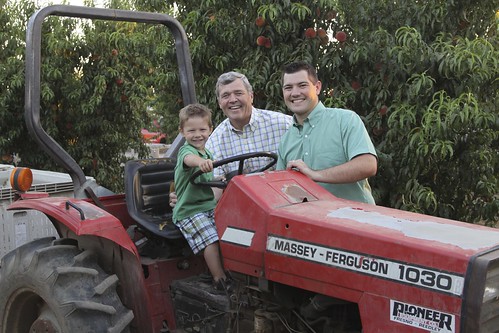
USDA’s purchase programs were created to support our nation’s farmers through the purchase of domestic products and to increase Americans’ access to nutritious food. Many businesses who sell to USDA find that the programs also create other opportunities for growth.
Companies like Wawona Frozen Foods have used the Commodity Purchase Program, administered by USDA’s Agricultural Marketing Service (AMS), as a reliable outlet for their products. The consistent opportunities offered through government contracting allowed them to eventually expand into commercial foodservice and retail markets. For nearly 20 years, Wawona competitively bid for contracts and provided quality, nutritious foods to USDA programs. As a dependable USDA vendor, they supply more than 50 million frozen fruit cups to the National School Lunch Program each year.
After the success and popularity of their frozen peaches, Wawona helped USDA introduce strawberry cups into the program, which quickly became a hit with students and faculty. To further diversify their offerings, they brought small fruit cups to the commercial market, allowing consumers to enjoy the same quality products that are so popular in the schools.
Now, as the largest processor of frozen peaches in the U.S., Wawona sends nearly 125 million pounds of frozen fruit products to the market annually. And as one of the company’s biggest buyers, USDA purchases nearly 10% of its annual volume per year.
Wawona’s success means they are no longer considered a small business for federal contracting, but they will continue to bid on and fulfill contracts to supply USDA with quality foods. At AMS, we know that successful food procurement relies on dependable vendors supplying quality products. And we also know that the benefits of each purchase go far beyond what is written on the contract. Strong partnerships with companies like Wawona also bear fruit for the communities where they operate.
AMS purchases have helped this third-generation family business strengthen the local economy in one of the nation’s largest agricultural centers—San Joaquin Valley, California. In addition to employing more than 200 full-time and 1,200 seasonal employees, they buy packaging and boxes from other companies within the state. Paying it forward, the company also supports local charities and created the Smittcamp Family Honors College at Fresno State University to help create more opportunities for students.
At USDA, we work hard to provide our nation’s schools, communities and households with quality, domestically-produced USDA Foods. Last year, AMS was part of a multi-agency effort to deliver almost 8.5 billion pounds of food through about $3 billion in contracts. None of these purchases would be possible without the active participation of a wide variety of large and small businesses—like Wawona—and the quality products they sell.
We rely on these food suppliers to offer quality products at reasonable prices while consistently living up to the department’s high standards. These partnerships and strong relationships with farms and businesses across the nation truly make it a win-win situation.




